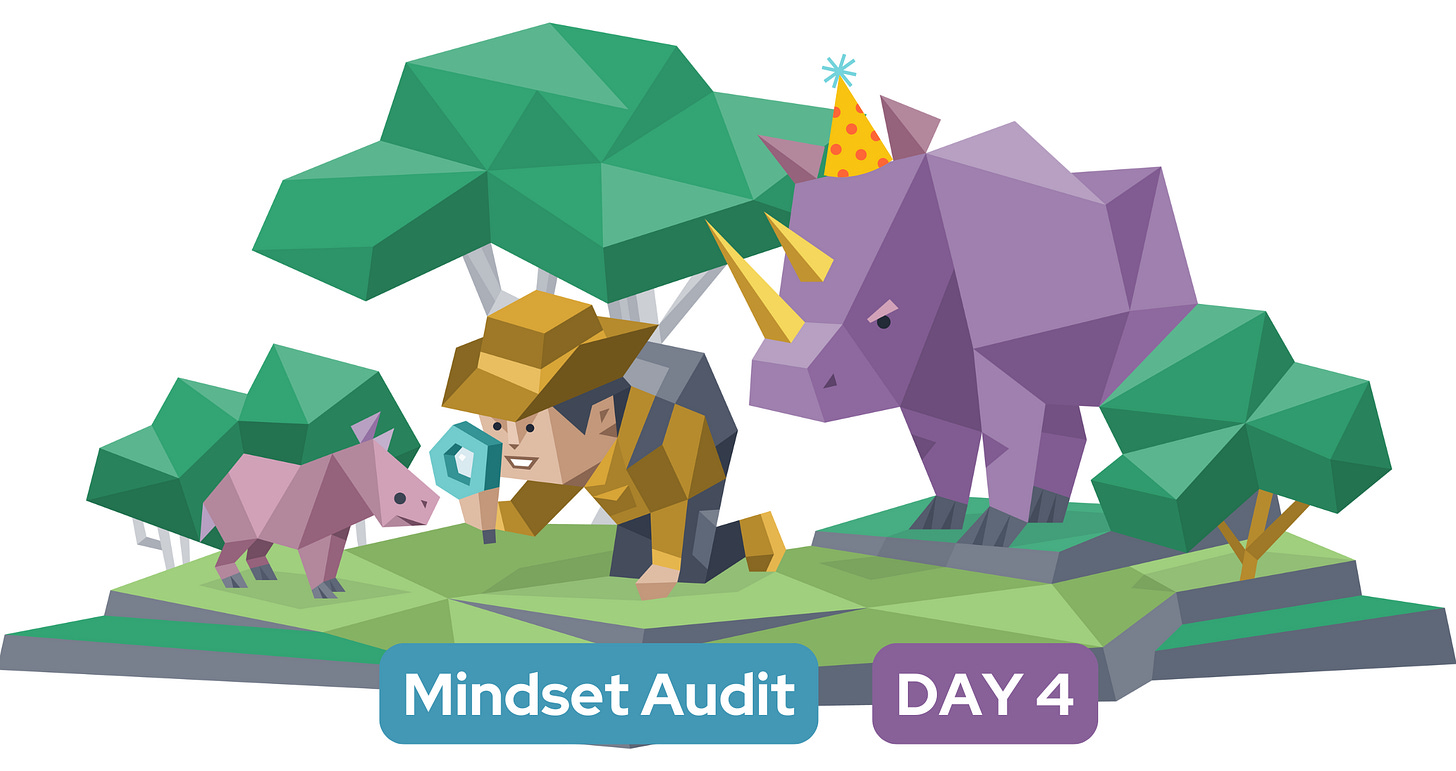The Courage to Invite Dissent
Transform Disagreement from Threat to Advantage by Actively Seeking Opposing Viewpoints: Part 4 of 5 in Our Mindset Audit
TLDR:
Leaders naturally attract agreement, creating dangerous blind spots in decision-making
Constructive dissent differs from criticism – it focuses on improving outcomes, not proving points
Actively asking “What am I getting wrong?” opens channels for valuable challenge
Receiving disagreement with curiosity rather than defense can transform team dynamics
Modeling vulnerability in seeking feedback creates a culture of continuous improvement
Welcome to Day 4
You’ve spent the past three days building awareness of your internal leadership patterns. You’ve explored your mental models, examined your core beliefs, and identified your cognitive biases. Now it’s time to turn outward.
Today, you’ll address one of the most powerful tools for counteracting blind spots: actively seeking disagreement.
Most leaders wait for feedback to come to them. But the higher you climb, the less likely people are to challenge your thinking. Today, you’ll learn to flip that dynamic. You’ll become the leader who actively invites constructive challenge.
The Leadership Echo Chamber
Here’s an uncomfortable truth about authority. It naturally creates an echo chamber around you.
Team members learn to tell you what they think you want to hear. They notice which ideas you respond to positively and they see which ones create tension. Over time, they adjust their communication to match your preferences.
This is basic human psychology. People want to be valued by their leaders, and disagreeing with the person who controls your career takes significant courage.
The result? You get filtered information when you need unvarnished truth. Your team sees problems you miss, has insights you lack, and notices patterns you’ve become blind to. But this valuable intelligence never reaches you because most work environments don’t encourage honest challenges.
The Types of Dissent That Matter
Not all disagreement helps your leadership. Constructive dissent focuses on improving outcomes rather than winning arguments.
Here are the types that strengthen your decisions:
Keep reading with a 7-day free trial
Subscribe to Leadership by 16Personalities to keep reading this post and get 7 days of free access to the full post archives.





